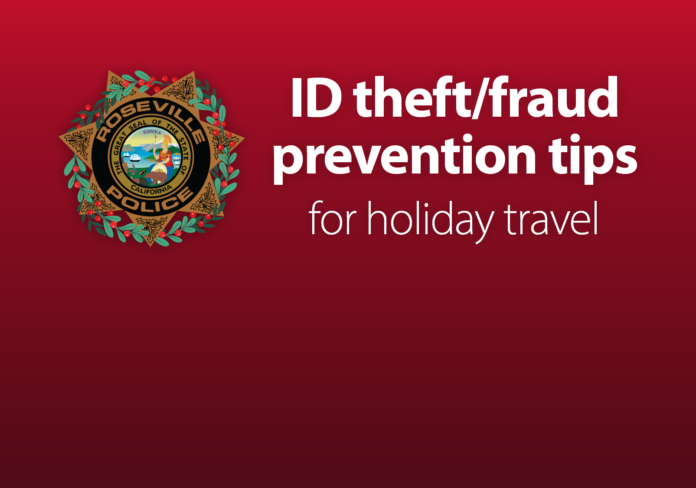5 Privacy and Identity Protection Tips for Holiday Travel
IDX, a digital privacy protection company, recently released the following tips regarding protecting your privacy and identity while traveling that we would like to share with you. Hackers and scammers don’t take a holiday vacation; and they look forward to this time of year in order to take advantage of the surge in travel. It’s definitely not the time to let down your guard when it comes to protecting your identity and digital privacy.
Problem 1: Fake or non-secure Wi-Fi networks
You’re out shopping with family to take advantage of holiday specials. You want to download some holiday photos a friend just sent you, so you look up available Wi-Fi networks. The first one shown is an open network with a name that sounds vaguely like it’s meant for shop guests. (Your phone may have even automatically joined the network.) There’s no security protection, but you’ll only be on for a few minutes, right? Later on, you discover that your identity has been stolen, or malware has infected your device.
Advice: Use a VPN (Virtual Private Network). Connecting to public Wi-Fi is risky, because others can potentially spy on you, track you, or plant malware on your device. Scammers can even create fake networks with authentic-sounding names in order to steal your personal data. When using public Wi-Fi, it’s best to go through a Virtual Private Network (VPN). It encrypts your connection and delivers your data anonymously, so no one can access your personal information, online activity, or location.
Problem 2: Device theft
You’re at a ski lodge and you realize you left a mitten in the bathroom. You leave your table for a few minutes, only to return to find that the phone you had left on your chair is now gone.
Advice: Secure your devices, and back up your data. Never leave a laptop or mobile device unattended in public places. Also, be sure your phone is always locked with a strong PIN, and your tablet or laptop is locked with a hard-to-guess password. (IDX Password Manager can create and store secure passwords for you.) Use cloud storage or an external storage device to regularly back up your device data, so that if your device is stolen, you’ll still have access to your information.
Problem 3: Credit or financial fraud
You’re on the go, and you’ve just swiped your credit card at a gas pump, or you’ve used your debit card at a public ATM. Only later—perhaps months later—do you discover that fraudsters have used skimming devices or similar means to steal your identity via your credit or bank account. Fraudulent activity has been conducted in your name, and your credit has taken a hit.
Advice: Regularly monitor your credit. If your identity has been stolen, it’s critical to find out right away so you can limit the damage. Monitor your credit report for any new financial activity in your name, so you can act quickly if anything seems suspicious.
Problem 4: Malware planted on public USB chargers
Your phone is running out of juice, so you recharge it by plugging into a handy USB charging outlet in the lobby of your hotel or at the mall. What you didn’t count on is having spyware or malware transferred from the USB charger to your phone.
Advice: Use AC chargers and keep your software up to date. It’s called “juice jacking”: Scammers load malware into the USB charging station infrastructure or in cables that they leave connected to the station. From there, they can infect your plugged-in device, and in turn lock you out of the device or steal your data. Avoid public USB chargers, especially in shopping centers or holiday pop up areas, and use an AC outlet instead. Keep your device’s operating software, as well as any anti-virus software, up to date, to make sure you have the latest security patches.
Problem 5: Declined credit card purchases
You’ve just had dinner at a restaurant after a long day of travel. You hand your credit card to the server, only to have them come back and tell you the transaction has been declined. You then discover that your credit account has been locked because the purchase seems suspicious. It’s one of those cases where fraud hasn’t actually occurred, but the credit card company thinks it has.
Advice: Set up a travel alert. Many credit card providers allow you to notify them if you’ll be traveling out of your home state, so they don’t wind up declining an out-of-state purchase or locking your account because it seems fraudulent. It’s especially important to set up an alert if you’re using a card for the first time, or for the first time in a long while.
With these few simple steps, you can have more peace of mind when using electronic devices and credit cards during holiday travel – and focus your attention on fun and loved ones, where it belongs.
Escape the ordinary and discover the extraordinary! From bustling cities to serene landscapes, every journey begins with a single step—let us guide yours. Enjoy curated itineraries, hidden gems, and hassle-free bookings designed for explorers at heart. Whether it's a weekend getaway or a globe-trotting adventure, your Next unforgettable experience is just a click away.










